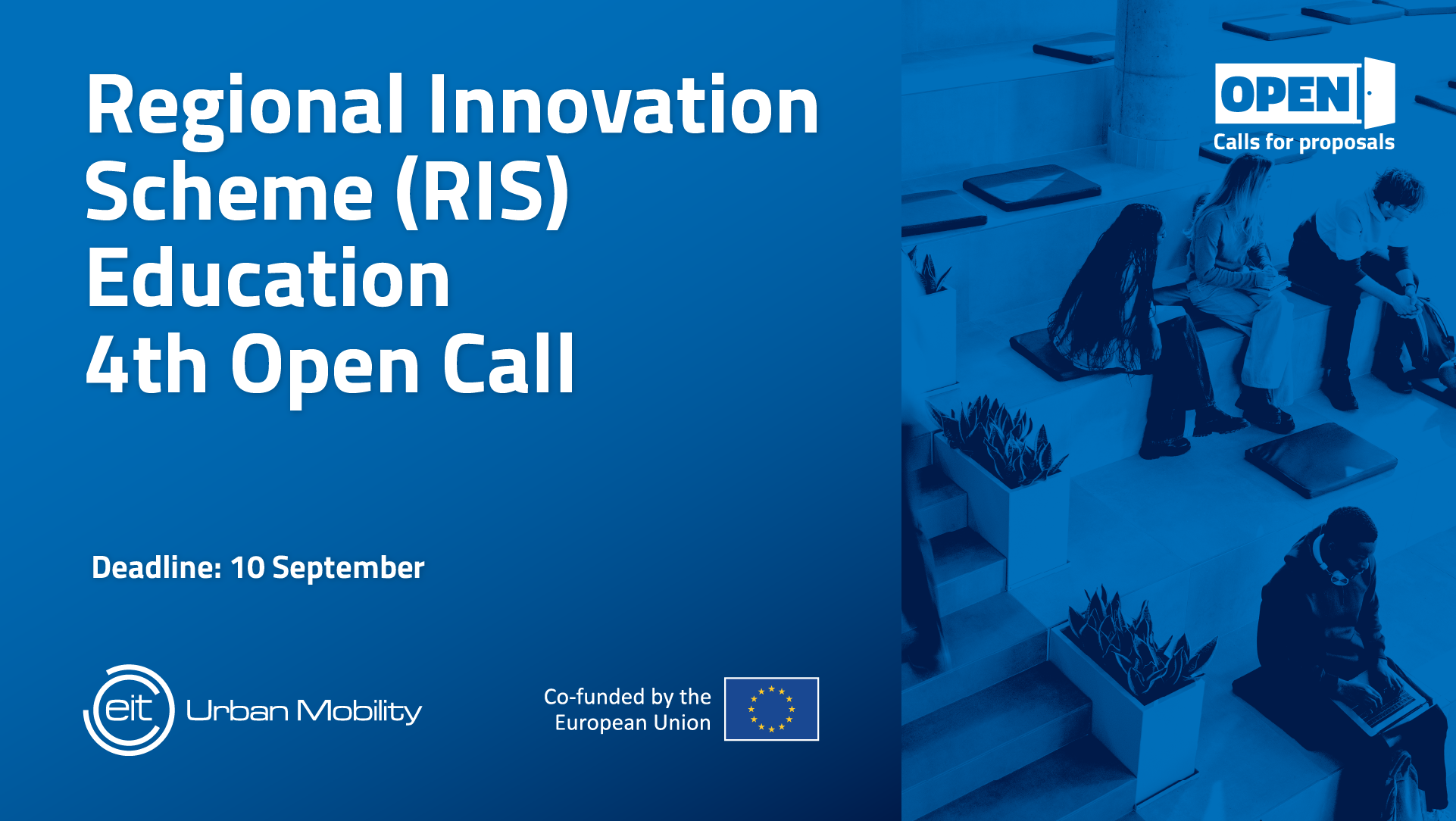This call aims at funding projects that can support the overall RIS strategy and aims, offer high-quality education, reach a large audience and market, and gain recognition efficiently with a lasting effect. The EIT Urban Mobility RIS Education objectives are focused on capacity building in innovation and entrepreneurship and urban mobility. These objectives are reflected in the activity types proposed in this call. The activities responding to these objectives should aim to improve transferrable skills that will lead to further innovation and entrepreneurship in urban mobility in RIS countries.
There are five general topics (RISE 1-5) that can be addressed by the proposals:
- RISE 1: Capacity-building (e.g. train the trainer, trainings aimed at improving innovation and entrepreneurial skills with a focus on urban mobility, programmes aimed at defining challenges, facilitating mutual learning, co-creating solutions)
- RISE 2: Education and training activities with a focus on innovation and entrepreneurship as well as urban mobility with a potential to reach a large audience and market, and gain recognition efficiently with a lasting impact
- RISE 3: Organisation of summer and winter schools for bachelor students in domain of area of innovation and entrepreneurship.
- RISE4: Scaling-up of local existing activities to reach wider audience and wider impact.
- RISE5: Network building with educational players
EIT funding allocation
The total indicative EIT funding allocated to this call for 2026 is approximately up to €1,250,000.
Projects under RISE1, RISE2 and RISE4 categories will be awarded a maximum of €150,000 EIT funding per project per year, whilst the maximum EIT funding under RISE3 will be €85,000 per project per year. For RISE5, the budget will be €20,000 – 50,000.
For more details on the indicative budget allocation per activity type, see section 3.6.1 of the Call Manual.
Who can apply?
EIT Urban Mobility creates ecosystems. KICs are anchored in regional and local communities via their co-location centres (known as Innovation Hubs within EIT Urban Mobility). EIT Urban Mobility constitutes the mechanism to link the knowledge triangle components of education, research and businesses across Europe and into the wider world.
At EIT Urban Mobility, we integrate these knowledge triangle components and have expanded them by adding another group: cities. Accordingly, EIT Urban Mobility currently brings together around 450 partners from 42 countries and four sectors: academia, research, industry and cities.
This Call for proposals is open to all types of legal entities established in European Union (EU) member states and/or in third countries associated with Horizon Europe. These legal entities may be universities, research organisations, small and medium-sized enterprises (SMEs), start-ups or cities, among others, and may or may not be EIT Urban Mobility partners at the time of the proposal submission. Former EIT Urban Mobility RIS Hubs and entities from Outermost Regions[1] are encouraged to apply to this Call by submitting proposals aligned with their preferred activity types. The applicants should have the expertise and previous experience in developing and implementing capacity building projects in urban mobility and/or innovation and entrepreneurship.
This Call is open to both multi-participant and mono-participant proposals from one or more RIS countries. In the case of multi-participant proposals, proposals must, as a minimum requirement, be composed of at least two independent legal entities[2] from at least one RIS country. In case of mono-beneficiary proposals, the applicant must be from a RIS country.
In the case of multi-participant proposals that involve entities from one country only and mono-participant proposals, the consortia shall explain how they are going to achieve the pan-European dimension in their projects. At the same time, the applying consortia are invited to integrate the knowledge triangle in their activities and should explain how cities, academia and industry partners are involved in the project design, development and implementation.
For information on special cases, including Switzerland and Hungarian universities please refer to section 2.1 of the Call Manual.
How can you apply?
The assessment of the proposals involves two stages: Stage 1 is the expert evaluation of proposals submitted via the EIT Urban Mobility NetSuite platform (see section 4.2 of the Call Manual for submission steps), followed by Stage 2, which includes a selection by the Selection Committee.
Key dates are:
- Call opens: 25 June 2025
- Info session: 9 July 2025, 12-13.30 CEST (see below section ‘Info Webinar’)
- Deadline to apply: 10 September 2025 at 17.00 CEST
- Eligibility and admissibility check: October 2025
- Stage 1 evaluation: October-November 2025
- Stage 2 evaluation: November 2025
- Communication of results: December 2025
- Tentative start of the projects: 1 January 2026
List of documents to take into consideration
- Call Manual
- Glossary
- Eligibility of expenditures
- Financial Sustainability guidelines
- Guidelines for applicants
- List of KPIs
- Appeal Procedure
- Project implementation handbook
- Financial Support Agreement (FSA) template
- Horizon Europe Annotated Grant Agreement
- EIT Label Handbook for Quality system for non-degree education and training and EIT Competence Certification Model
Info Webinar
EIT Urban Mobility hosted an online information session on 9 July 2025 12.00 – 13.30 CEST:
Contact details
All applicants may contact EIT Urban Mobility at [email protected] to resolve any concerns or doubts on the general/technical procedures and Call content.
[1] https://eit.europa.eu/activities/eit-regional-innovation-scheme-ris-closing-innovation-divide-europe.
[2] Two legal entities shall be regarded as independent of each other when neither is under the direct or indirect control of the other or under the same direct or indirect control as the other. Please refer to the full definition in Article 8: https://ec.europa.eu/research/participants/data/ref/h2020/legal_basis/rules_participation/h2020-rules-participation_en.pdf.
